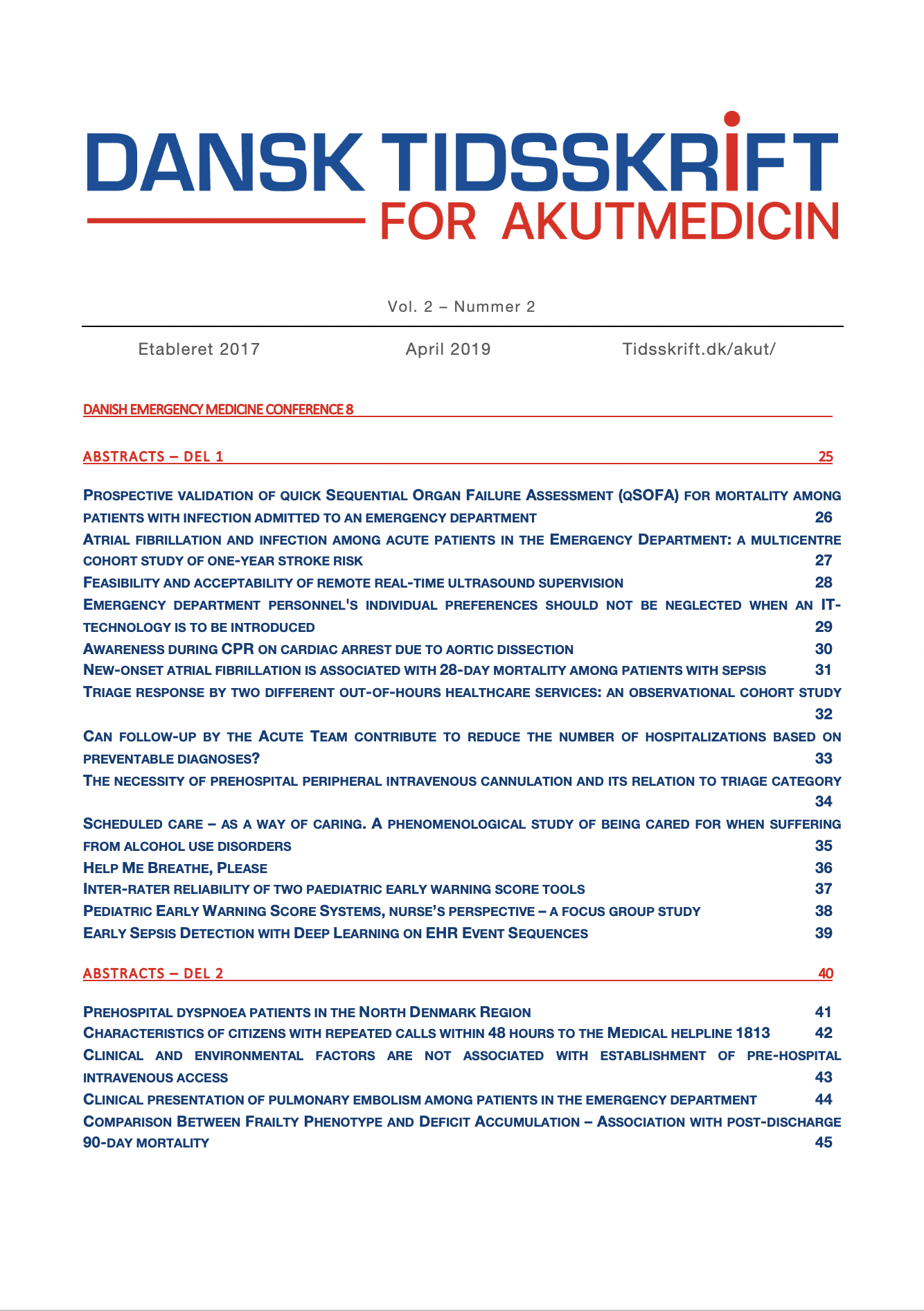Resumé
Excessive alcohol consumption is health damaging and is also recognized as one of the major avoidable health risk factors. Alcohol use disorders are classified among one of the most harmful, debilitating disease categories and patients are frequent visitors in the emergency departments. The meeting between patient and healthcarer is considered contradictory and characterized by dilemmas and arbitrariness. Furthermore, this patient group differs from the regular patient. They are often characterized by very complex health pictures and chaotic social problems spawned by turbulent lifestyles. However, the experience of a hospitalization from a patient perspective is sparsely documented in a scientific context. The aim of this study was to elucidate the lived experience of how patients with alcohol use disorders experience being cared for when admitted to acute medical units.
The data set consists of 15 in-depth interviews with patients suffering from alcohol use disorders admitted to an acute medical unit. The study is anchored in the phenomenological philosophy and the methodology applied is a descriptive phenomenological method as defined by Dahlberg. The intention is to identify and understand the essences, patterns, and structures of the lived experience of being cared for when hospitalized and suffering from alcohol use disorders. Data has been analysed according to the guidelines in Reflective Lifeworld Research, given by Dahlberg.
Being cared for was experienced as a two-staged process that changed throughout the hospitalization from an experience of scheduled care experienced as caring to an experience of scheduled care experienced as non-caring. Four constituents further described the variable experiences: being in a safe haven, sharing a tacit but mutual goal, being in a chaotic space, and being on your own.
The study showed that patients suffering from alcohol use disorders call for an intentional and distinctive attentiveness from the carers throughout their hospitalization. Being both seen and met in an authentic presence by carers was a powerful tool that helped ease the hospitalization. Likewise the absence of the authentic presence during the second stage may have hindered the carers notice and respond to a transfer of attention within the patients, and thus adapting the care provided.
Licenseret under en Creative Commons Kreditering 4.0 International-licens (CC BY 4.0).
© Forfatterne.

